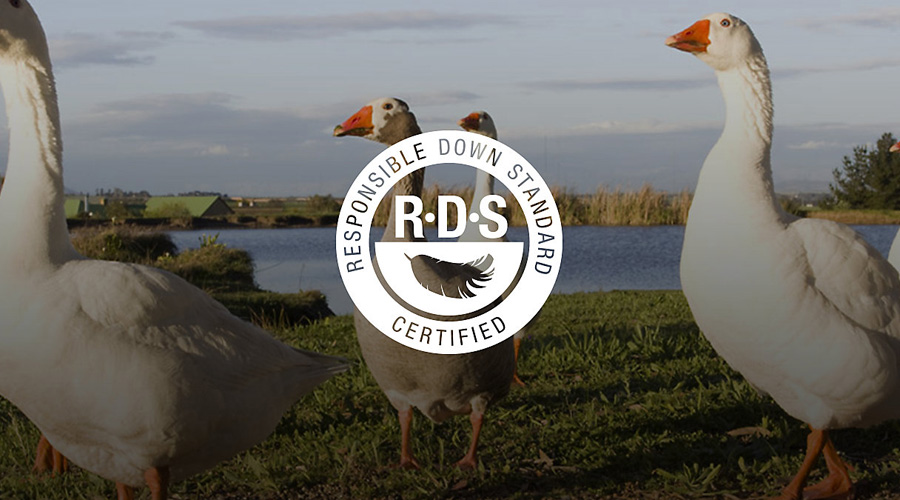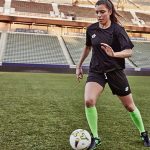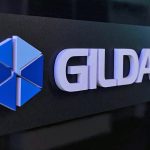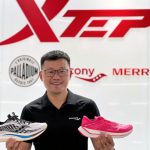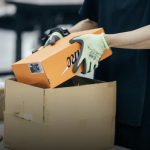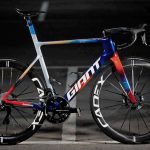The Responsible Down Standard, which was spearheaded by outdoor apparel brands and their suppliers to promote humane treatment of birds used to produce down fill and insulation, appears to have emerged from its first challenge from animal rights activists stronger.
The challenge came in the form of an “exposé” released by People for the Ethical Treatment of Animals (PETA) May 26 that is based on video footage it obtained from 2012 to 2015 of live plucking of geese at farms in China. The footage shows workers restraining geese while they pluck virtually all of their feathers by hand and features interviews with farm managers who claim to be selling those feathers to RDS-certified processors.
RDS is an independent, voluntary global standard, which means that companies can choose to certify their products to the standard even if there is no legislation requiring them to do so. Certification, which involves establishing detailed procedures for documenting down as it travels through the supply chain and third-party audits, is administered by the Textile Exchange, which provides similar services for the organic cotton industry.
While the RDS was developed and revised over three years, with the input of animal welfare groups, industry experts, brands and retailers, PETA never participated as a formal stakeholder in the process because it opposes commercial exploitation of animals, whether for food, clothing or other any other products.
PETA claims the footage in its report “raises concerns over the legitimacy of the “Responsible Down Standard,” which bans the use of feathers gathered through live-plucking or from geese that are force-fed for the production of foie gras. The organization, which opposes using all commercial exploitation of animals, is using the report to urge consumers and brands to switch to synthetic products.
However, industry sources say they could not be more pleased with how RDS enabled them to quickly refute PETA’s claims.
“This is the first challenge and I’m so happy to see how it worked,” said Daniel Uretsky, president of Allied Feather & Down Corp., a California company that is among the largest suppliers of down used in sleeping bags and jackets and which played a leading role in shaping RDS. “It held up pretty well. PETA is looking to discredit the system. We are saying we are not denying live-plucking exists, but we are not buying that product.”
Several anonymous individuals identified as farm managers in PETA’s video are recorded saying in Chinese and English that they conceal their live plucking practices so they can sell to RDS-certified suppliers such as Allied Feather & Down and Down Decor, which are two of the largest suppliers of down to the outdoor industry.
Media coverage fizzles
While CBS News aired the report the day it was released, coverage has since fizzled as it became clear PETA had failed to link live plucking to the RDS supply chain. Even the U.K.’s salacious Daily Mirror removed an article from their website that they had published on the report after being contacted by a spokesman for Down Décor subsidiary Downtek, which provides RDS-certified water repellent down used in jackets and sleeping bags made by such brands as Big Agnes, Eddie Bauer, Eastern Mountain Sports, L.L.Bean and several European brands.
“Basically the media coverage fizzled, which I think is proof RDS is working said DownTek Spokesman Gordon Wright. “We are proud to be part of system.”
Four Paws, a German animal welfare organization that helped shape the RDS, told SGB Executive that PETA’s report has not changed its faith in the standard.
“Four Paws views on the RDS have not changed as there was no link made between RDS farms and live-plucking,” said Nina Jamal, who heads up Four Paws campaigns to improve the welfare of farm animals. “There are no 100-percent guarantees that cruel practices are avoided but the RDS is one of the two strictest industry standards on down, animal welfare & traceability (along with the Traceable Down Standard) and if weaknesses are found in those standards, we will ask that they become stricter.
In one segment of PETA’s video, a representative of a farm that claims to sell live-plucked feathers to Down Décor supplier Jilin City Bailing Down Products (Bailing) tells a PETA operative posing as a potential buyer that the farm plucks covertly to avoid losing sales. “[W]e advertised that it’s all plucked after slaughter—nobody dares to buy it if you say it’s live-plucked,” he says, according to English subtitles.
It turns out, Down Décor opted not to buy from Bailing after it was unable to prove RDS certification, Wright said.
“Luckily, we have a huge amount of actual evidence refuting that,” said Wright. “RDS worked exactly as planned.”
Granular documentation
Thanks to granular chain-of-custody documentation required by RDS, Allied Feather was able to assure customers within 48 hours that no live-plucked feathers had made their way into their RDS-certified products.
“After intensive research, it is with total confidence that we can say absolutely no such down was purchased by Allied nor used in any partners’ products that use Allied down,” wrote Uretsky in a 1,500-page open letter that went on to explain in grueling detail the chain of custody for all feathers the company had sourced from New White Goose Farming Cooperative, which PETA’s report presents as an Allied Feather supplier.
The letter notes that while Allied Feather sourced feathers from the Chinese supplier PETA sought to tie to the New White Goose in October 2014 and February 2015, the first purchase was low down fill that is only harvested after the birds are slaughtered for food, while the second purchase was down produced only from grey geese, rather than the white geese depicted in the video, which was shot in August, 2015.
Because the supplier had not been certified to RDS at the time of those purchases, Allied required it to sign a document guaranteeing it would not sell any live-plucked feathers to Allied. Reluctant to rely entirely on supplier assurances, Allied took the additional step of working with regional veterinarians to obtain official government certificates that showed all the supplier’s material was procured from birds after they were slaughtered for food.
Allied had become the first global down supplier to implement those two practices in 2009 as it sought to assure its customers years before it even began working with The North Face and other customers to establish the RDS. Allied Feather remains the only U.S. company that owns a down processing facility in China, where it maintains a five-person sourcing staff, according to Uretsky.
A farmer recants
In an interview Thursday, Uretsky said the supplier implicated as buying live-plucked feathers from New White Goose has since secured a signed statement from the cooperative’s management attesting to the face it never sold any of its feathers to the company.
“Their claim is they never bought any feathers from White Goose and they’ve got a written statement from them saying they never bought anything from that farm,” said Uretsky.
Uretsky noted other inaccuracies in PETA’s report, including its assertion that RDS “permits suppliers to handle both feathers that are live-plucked and those that are plucked after the birds are dead, making it unclear how much the consumer can trust that any real safeguard against live plucking is in place.”
“No it does not,” he said. “And we’re incredibly disappointed in how disingenuous we feel their attack is, as any link made to connect Allied to any such material is simply non-existent.”
Despite the sentiment, Uretsky, who is an attorney, has no plans to sue PETA or demand a retraction.
“We know we have not done anything wrong and I think our customers understand that PETA is nitpicking on a part of industry that is trying to improve animal welfare,” he said.
Among those customers are Eddie Bauer, which announced its commitment to use 100-percent RDS-certified down in October 2014 and buys exclusively from Allied.
“We researched PETA’s allegations with AFD and there is no evidence of any live-plucked goose down entered our supply chain,” the company said in a statement sent to SGB Executive June 3. PETA, meanwhile, stands by the claims in its report, which a spokesperson said had generated a great response in the form of media coverage and industry introspection.
“We are in discussions with several companies,” said Anne Brainard, a spokesperson with PETA. “Companies are taking a close look at sourcing practices and whether they need to use down at all and the fact that suppliers are flat out lying.”
–Charlie Lunan

